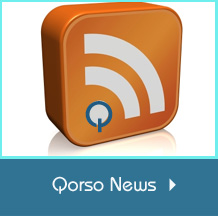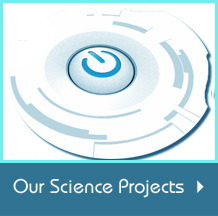Q Mind Next Generation eLearning
The African Medical and Research Foundation (AMREF) is an independent, non-profit organization whose mission is to improve health and health care in Africa. AMREF aims to ensure that every African can enjoy the right to good health by helping to create vibrant networks of informed communities that work with empowered health care providers in strong health systems. AMREF’s work strengthens Africa’s health systems and health human resources and uses six entry points that include HIV/AIDS; malaria; safe water and basic sanitation; family health; disaster management and emergency response; and health care-related training.
AMREF is headquartered in Nairobi, Kenya and is the continent’s leading health development organization. In 2005, AMREF won the prestigious Gates Award for Global Health for making a major and lasting contribution to the field of health in Africa. To learn more about AMREF, visit www.amref.org.
Every day in Africa, more than 3,000 children under the age of five die from malaria—a devastating statistic that illustrates why the continent urgently needs to increase the number of frontline health care workers who are qualified to treat such diseases as malaria, the leading cause of child morbidity and mortality in Africa. More than 85 percent of Kenya’s nurses are “enrolled nurses,” unable to obtain the advanced training needed for a “registered nurse” diploma. With that diploma, registered nurses have the skills to combat the spread of diseases such as malaria, AIDS/HIV and tuberculosis that have such a devastating impact on the country.
Business challenge
Although there are nearly 20,000 “enrolled” nurses waiting to upgrade to “registered” status, Kenya has then resources and classrooms to train only 100 registered nurses a year using traditional classroom methods. At that rate, it would take literally hundreds of years to certify these 20,000 enrolled nurses. To address Kenya’s shortage of qualified health care workers, AMREF was asked by the Kenyan Ministry of Health to find a rapid and sustainable health care training process to upgrade Kenya’s 20,000 “enrolled” nurses to “registered” status. AMREF is internationally known for its pioneering initiatives, including a leading-edge telemedicine program that enables remotely located health workers in sub-Saharan Africa to consult live on difficult cases with doctors at AMREF’s central laboratory in Nairobi. To address the nursing crisis, AMREF initially designed a paper-based distance learning course, but soon realized that this approach would not quickly and efficiently address the problem. AMREF then approached Qorso and together the two organizations agreed that a new and ground-breaking approach to health care training in Kenya was needed—e-learning.
However, transforming the vision of e-learning into reality meant overcoming hurdles that have hampered past effortsto implement technological solutions in Africa. Drawing on past experiences, AMREF recognized that the success of an e-learning initiative hinged on forming partnerships and obtaining advanced technical skills. In 2005, AMREF teamed with Qorso Technology and the Kenya Nursing Council to develop a revolutionary e-learning program that would enable Kenya to train and certify these 20,000 nurses in just five years. 1 References to Qorso Technology include Qorso Q Mind, MindPoint, eMERSIVMEDIA and its subsidiaries as well as independent charitable organizations that bear the Qorso Technology name or are companies under the SV Parnters umbrella.
The e-learning program has three primary objectives:
• Design and implement an e-learning solution to enable the rapid skills upgrade of nearly 20,000 Kenyan nurses to “registered” level.
• Build the capacity of AMREF personnel to develop, implement and monitor effective e-learning.
• Leverage the results from the program to influence policy and replicate the e-learning program in other African countries (i.e. create some reusable assets to monitor, document and disseminate an alternative model for upgrading health professionals in a resource constrained environment).
The funding from the SV Blue Archer Foundation is providing for the program management, staffing and administrative needs of the program; PC infrastructure for the training centers; as well as orientation and training for the mentors who would support the nurses during training. The contribution from Qorso Q Mind is being used to develop the e-learning content and infrastructure, specifically:
• Registration, testing and training services for Kenya’s regional training centers (including implementation of a learning management system.)
• Conversion of print-based curriculum into 160 hours of e-learning content, including assessments.
• Help desk support for nurses and administrators.
• Training for AMREF representatives to develop, implement and monitor the e-learning program.
The e-learning program is designed to run over five years and has three distinct phases: design and program planning, to last three months; followed by a three-month pilot serving 160 nurses in four regional training centers with assistance of Qorso Technology Development Partnerships; and then a six-month rollout of the full solution to all regional training centers. Following rollout will be four years of ongoing support of the e-learning program by Qorso Technology. Today, the program is entering into its full “run mode” having successfully completed all pilot programs. The program is designed to leverage Qorso Q Mind One Engine Web-based Content Learning Management System that tracks student registration, enrollment and completion of each e-learning module. The scalable technology will grow with AMREF’s changing needs, and allow Kenyan health officials to compile up-to-date information about graduates’ specialized skills. The program also employs Qorso Technology Q Mind proprietary learning content development approach that enables the efficient conversion of paper-based material to the e-learning format, including instructional topics, imbedded photographs and graphics, and online assessments to evaluate a student’s proficiency. As the program progressed, AMREF determined that in order to effectively address the nursing shortage, it needed to reach nurses in the more remote areas of Kenya that have limited public transportation.
Therefore the number of e-learning centers to be established across Kenya to deliver the e-learning solution was substantially increased, with the objective of making the training more accessible to Kenya’s remote nursing population. One of the primary goals of the e-learning initiative is self-sufficiency. The project was designed to gradually transfer skills and knowledge from Qorso Q Mind, giving AMREF an increasing ability to manage the technological elements of the program, as well as to lead efforts to provide local Kenyan support and coordination. By educating AMREF to administer and expand the project on its own, the organization will not be as dependent on outside help after the initial five-year ramp-up period and will better enable it to develop similar programs in Kenya and other African nations. AMREF is on schedule to achieve its goal of certifying nearly 20,000 registered nurses by 2011. Four modules consisting of 160 hours of training have been developed and deployed. The help desk and learning management system have been rolled out. More than 100 e-learning centers—many in the remotest areas of Kenya—have been established to deliver the e-learning training, and 27 nursing schools have also implemented the program.

To date, more than 2,000 nurses have enrolled in the e-learning program with enrollment expected to peak in 2008. The first graduation of nurses is scheduled for September 2007. Additionally, knowledge transfer to AMREF personnel—including content development, technology and program management skills—is complete. From the start, Qorso Technology placed great emphasis on transferring knowledge and capacity to AMREF’s team in Kenya. This has had a positive and sustainable impact on AMREF, our people and the project. The 20,000 newly trained registered nurses the initiative will create over the next five years will be dispersed throughout Kenya—a complete departure from what could be done employing traditional classroom methods. These nurses represent a staggering increase in the number and skills of frontline health care workers. They will be skilled at treating Kenya’s most debilitating diseases, such as HIV/AIDS and malaria, as well as at administering preventative treatment—vaccinations, pre- and post-natal care—in the nation’s remote and most impoverished areas. The e-learning courseware also trains nurses in disaster management and how to respond to man-made and natural catastrophes familiar to Kenya, such as famine.
This visionary e-learning program is groundbreaking on many fronts. It represents one of the first uses of e-learning to train health professionals in Africa, improving the quality of training while drastically reducing the time it takes to certify registered nurses. Additionally, the learning management system provides an invaluable tool as it enables Kenyan health officials to match skilled resources with specific needs. AMREF and Qorso Technology have reinvented the education process by harnessing the potential of computer-based learning to dramatically advance Kenya’s medical training capabilities. Already, AMREF is preparing to replicate Kenya’s e-learning model in other African nations.






